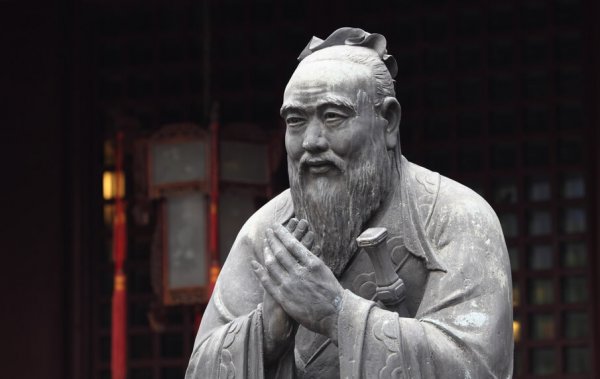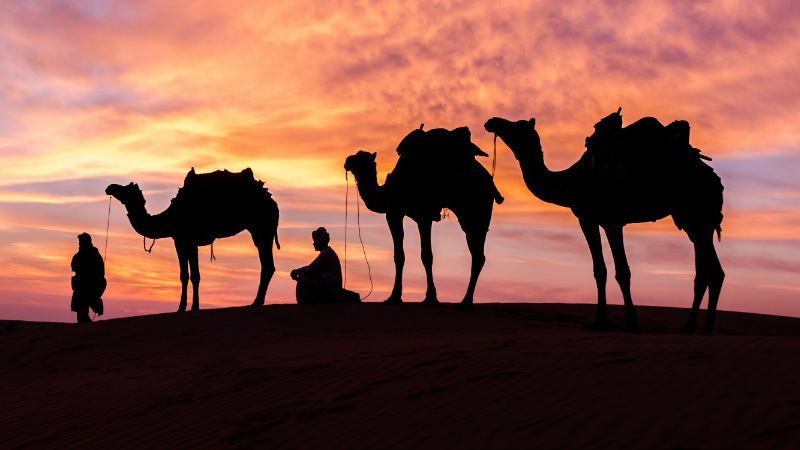“Arise, victorious hero, caravan leader,
Debtless one, and wander the world.
Let the Blessed One teach the Dharma,
There will be those who will understand.”
I was discussing the subject of Buddhist leadership with one of our website contributors recently. I suggested that while the ten virtues of Buddhist governance articulate well what a leader should ideally have, it was helpful to look deeper into the history of Buddhism, in particular the persona of the caravan leader (sarthavaha), and how it intersects with Chinese philosophy to form a compelling vision for the qualities of a courageous, wise, and decisive leader.
I was inspired by an essay about combining the junzi ideal in Confucian ethics with the needs of modern business leaders in China. The junzi—variously translated as a gentleman, noble’s son, or superior person—denotes someone who has reached a high level of inner cultivation. This person is worthy to be a respected leader. For Confucius, a person measures up to a junzi’s aspirations and standards by their virtue, wisdom, and courage. “Virtuous (ren 仁), he is free from anxieties; wise (zhi 智), he is free from perplexities; bold (yong 勇), he is free from fear.” (The Analects, Book 14, Chapter 30:1).
To meet such standards, we have to display our virtue through discerning the currents of society and propriety (li) and aligning it with our inner conduct. This manifests as an outer expression of inner character: “The superior man in everything considers righteousness to be essential. He performs it according to the rules of propriety (li). He brings it forth in humility. He completes it with sincerity. This is indeed a superior man.” (The Analects, Book 15, Chapter 17)
Critically (one is reminded of self-help advice here), proper conduct and propriety means not just the actions performed but how they are gone about. In her journal article “Ascending the Hall”: Style and Moral Improvement in the “Analects,” Amy Olberding notes that the junzi is mindful of the tonal elements of performance, and entertains a kind of “exemplarism.” She notes they take into account “. . . elements that can range from posture to voice to facial expression—to convey an accord between one’s behavior and one’s disposition.” (Olberding 2009: 503)

How a leader behaves and appears reflects the nobility that is within them. We also need to be wise so we can make the right moves when making important decisions. Finally, our heart must be brave to fight fearlessly when faced by difficulty. These three virtues all focus on cultivation of the interior person. In so becoming a junzi, one becomes a leader.
But who is a sarthavaha? This persona has been the archetype of ideal leadership and “power” since the earliest days of recorded Buddhism, which are entwined with the opening up of the Silk Road in the Han Dynasty (206 BCE–220 CE), which in turn coincides with the consolidation of the central Confucian texts into Chinese political thought. The Buddha was equated with being a “great hero” and “caravan leader” in the spiritual sense and the latter motif was influenced by the earliest lay devotees of the Buddha, who tended to be mobile traders and merchants.
A caravan leader is, both in its mercantile and spiritual sense, heroic: he or she leads camels across a harsh environment (be it the deserts of the Silk Road and unexplored frontiers, or the world of suffering) to a destination of promise: of material prosperity for the businessman, of stable and happy society for the politician, and of spiritual succor for the religious leader. The sarthavaha, like the junzi, is an ideal person because of their generosity (in both spirit and materially, through their donations to the Buddhist monasteries), courage, and wisdom. They are leaders because they are teachers, protectors, and exemplars. We can only be these things through the cultivation of internal virtues, such as the ten characteristics of governance, which reflect those of the junzi.
The “noble caravan leader” integrates these qualities of the sarthavaha and the junzi into a formidable identity that can be applied across different individual social roles, industries, and cultural contexts. They are heroic like Shakyamuni Buddha, in what they aspire to and how they wish to accomplish their goals. This goal is specifically awakened activity, which the caravan leader has a laser-sharp focus on. They are the people who want to lead others to safety: out of deserts, forests, mountains, and oceans. They integrate internal cultivation with the bodhisattva’s desire to liberate all beings. This dedication completes the character of a Buddhist leader.

